huawei
Latest
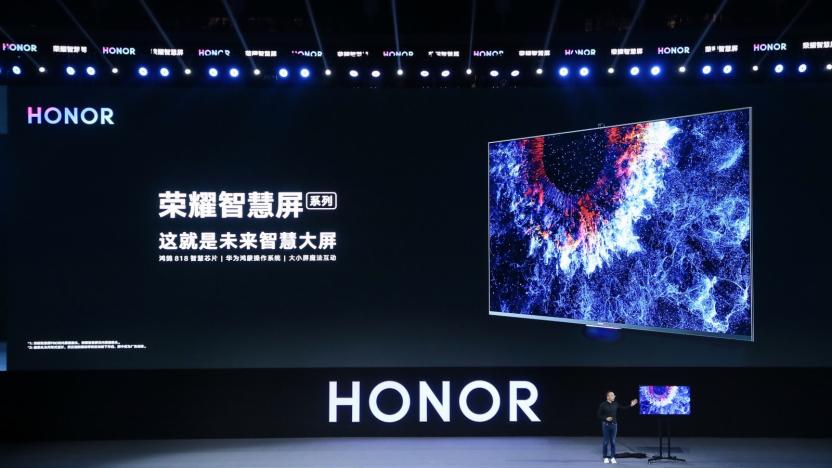
Huawei's Android alternative powers Honor's first smart TV
Huawei has unveiled its Honor brand's first smart TV, which is also the first product powered by the Android alternative the company launched at its developer conference. As the controversial manufacturer explained, HarmonyOS is aimed at IoT devices like smart displays and speakers, as well as wearables and in-car devices. Honor President George Zhao said the new display, called Honor Vision, is meant to be used not just as a TV, but also as an information center and a control panel of sorts for your connected devices.
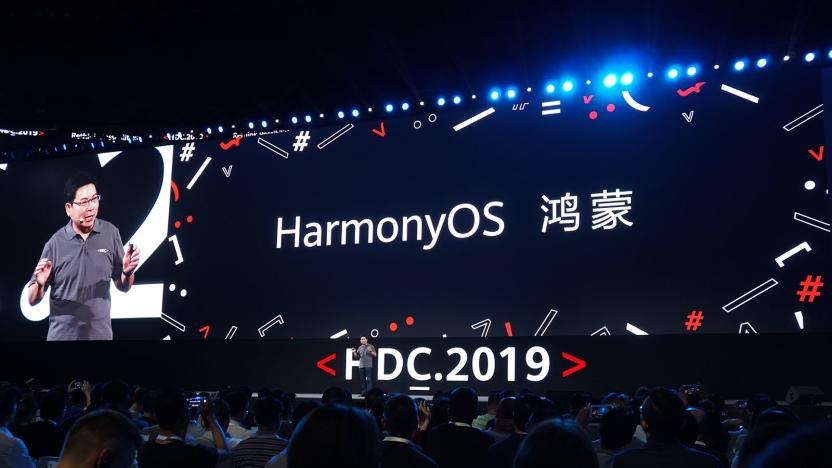
Huawei reveals HarmonyOS, its alternative to Android
Huawei's long-rumored Android alternative, Hongmeng, is finally official. At today's Huawei Developer Conference, the company's Consumer Business Group CEO Richard Yu surprised the audience by unveiling "HarmonyOS," which he says is faster and safer than Android. That said, the software is primarily aimed at IoT products (such as smart displays, wearables, smart speakers and in-car devices) instead of smartphones. Yu says that when Huawei can no longer access Google's Android ecosystem, the company can deploy HarmonyOS "at any time." Until then, Huawei will continue to support Android.
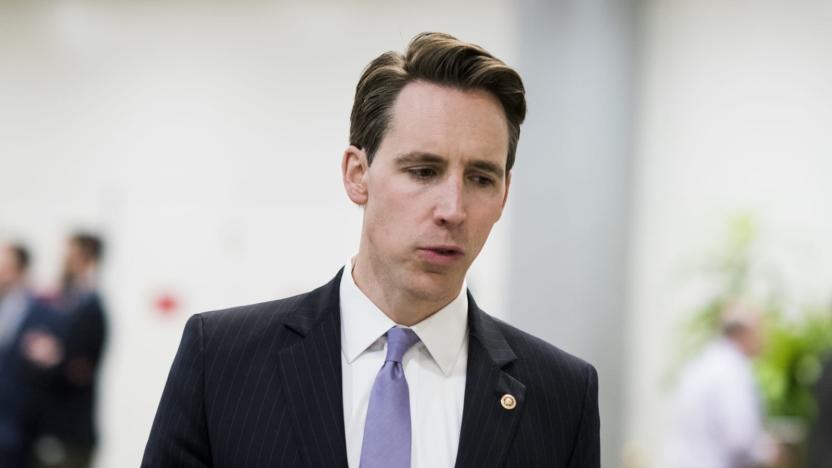
Senators want answers from Google over Huawei's cancelled smart speaker (updated)
Huawei's Google-backed smart speaker might never have seen the light of day, but that isn't stopping politicians from asking questions about it. Republican Senators Josh Hawley, Tom Cotton and Marco Rubio have sent a letter to Google chief Sundar Pichai requesting answers about the never-announced device. They're concerned that the speaker could have served as a "listening device" for the Chinese, and that Google might have been "putting profits before country."
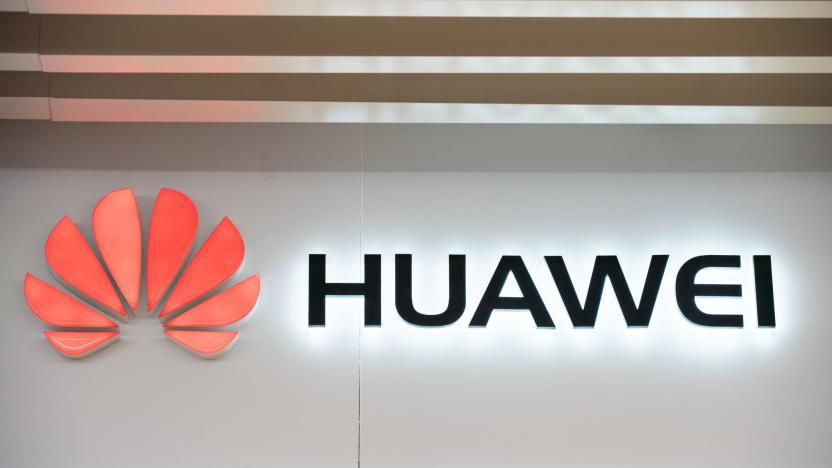
Huawei phone sales increased by over 20 percent despite sanctions
Huawei has seen its business hold steady through the first half of 2019 despite the international issues that surround it. The company has been accused of being too close to China's leadership, producing insecure products that could be used for surveillance.
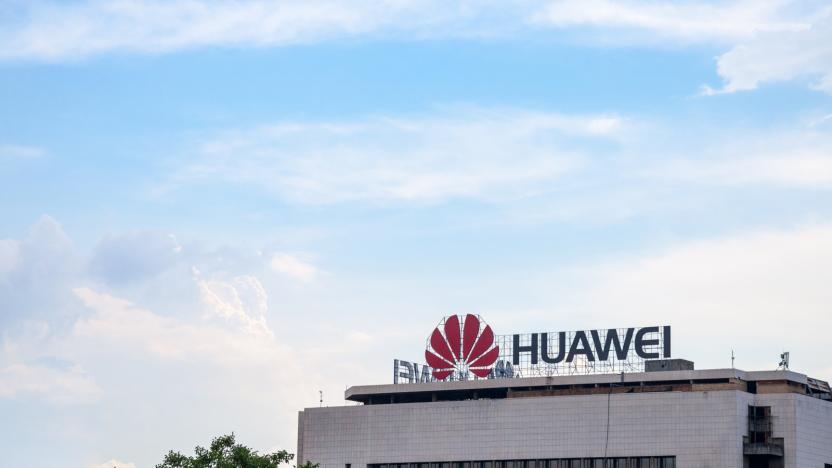
Huawei and Google scrapped their smart speaker due to US ban
Before the Trump administration declared a 'national emergency' effectively banning Huawei, Google and Huawei were reportedly months away from launching a Huawei-branded smart speaker. The companies allegedly planned to reveal the speaker at a trade show in Berlin this September and to sell it online in the US. But progress came to a halt when the Trump administration blacklisted Huawei, sources told The Information.

Huawei lays off two thirds of its US research division
The rumors of Huawei laying off a large chunk of its US staff have come to pass. The company is cutting over 600 of the 850 jobs at its Futurewei Technologies research wing in the country in response to the "curtailment of business operations" by the US government's trade blacklisting. Simply put, the researchers can't do their jobs now that it's illegal for Futurewei to transfer much of its work to its parent company.

Huawei allegedly developed a spy-friendly phone network for North Korea
If Huawei was hoping to mend its reputation in the wake of the de facto US ban, it's about to be disappointed. The Washington Post and 38 North have published joint reports indicating that Huawei helped build Koryolink, North Korea's highly restrictive cellphone network that went live in 2008. According to documents, Huawei partnered with China's state-owned Panda International Information Technology on projects in North Korea for at least eight years, with cooperation starting when then-dictator Kim Jong Il visited Huawei's headquarters in 2006. Huawei provided elements like cellular infrastructure, network management and encryption, while Panda provided software and transported Huawei gear.

Huawei CEO: Entity List ban is 'the start of the US falling behind'
It's been a tumultuous year for Huawei's businesses in the US, and the company's highest-ranking officials are speaking out. Founder and CEO Ren Zhengfei spoke with Yahoo Finance in an hour-long interview published today, explaining the company's plans to manage the US government's impositions, as well as his interpretation of the intentions behind those actions.
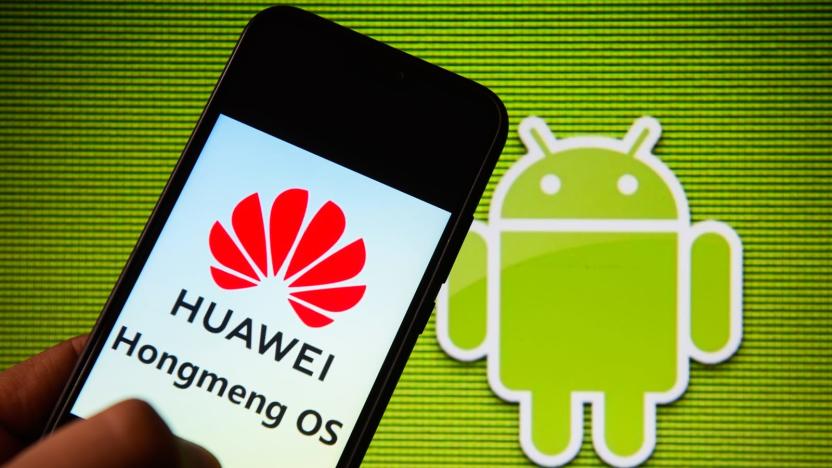
Huawei's supposed Android alternative isn't meant for smartphones
When Huawei trademarked its Hongmeng operating system last month, many assumed it was the long-rumored mobile OS that the company said it could use in place of Android or Windows. But that's not the case. Catherine Chen, a Huawei board member and senior vice president, told XinhuaNet that Hongmeng wasn't designed for smartphones. Instead, it's meant for industrial use, and Huawei plans to continue using Google's Android OS for its smartphones.

Congress tries to limit Trump's ability to ease Huawei restrictions
President Trump's desire to lift some restrictions on Huawei won't go unchallenged. A bipartisan group of senators has introduced a bill, the Defending America's 5G Future Act, that would effectively set the original blacklisting in stone. It would "codify" the executive order forbidding sales of telecom equipment to customers posing national security risks, bar the removal of Huawei from the Commerce Department Entity List without an act of Congress. It would also block waivers that any administration might offer to US companies doing business with Huawei.
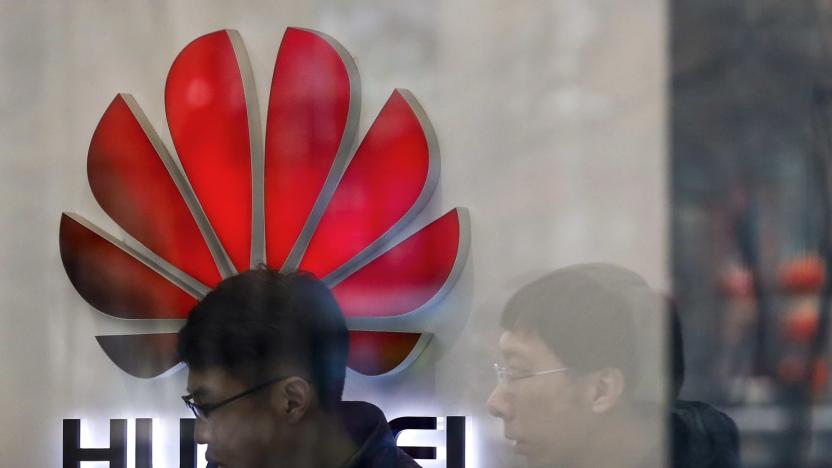
Huawei preps 'extensive' US job cuts despite partial reprieve
Huawei appears to be prepared for a long trade battle despite the US government's promises of easing some restrictions. Wall Street Journal sources claim Huawei is prepping "extensive" layoffs at its Futurewei research offices in the US, with "hundreds" of people out of 850 expected to lose their jobs. Some of its China-born staff will reportedly have the option of staying with the company if they return to their homeland.
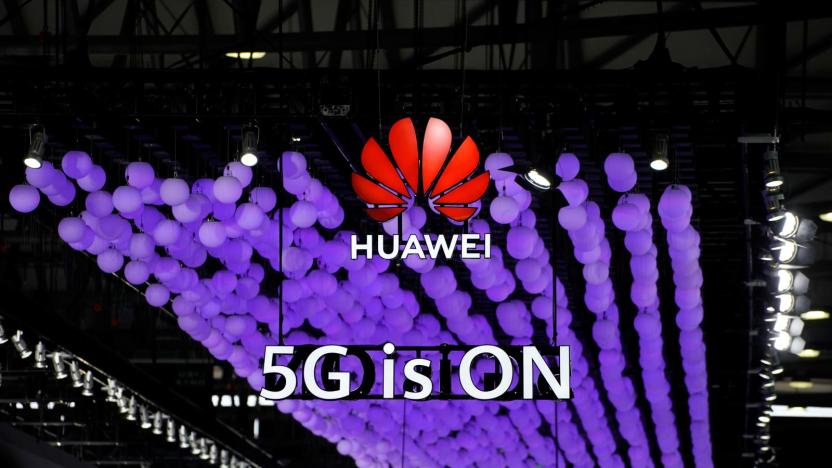
Huawei is helping all the UK's top carriers build their 5G networks
British carriers apparently aren't put off by US pressure to ditch Huawei for their 5G network deployments. The Guardian's sources understand that all four of the UK's largest wireless providers (EE, O2, Three and Vodafone) are all using Huawei to build their 5G networks. The Chinese firm is reportedly involved with six out of Vodafone's seven initial 5G cities, while it's also helping with "hundreds" of EE sites. O2 and Three have also awarded contracts to Huawei, according to the tipsters.

Our foldable future is running a little late, and that's OK
From the moment it was first teased last year, Samsung's Galaxy Fold convinced many that foldable phones were the next frontier to conquer. To no one's surprise, it wasn't long before competitors announced foldable plans of their own, feeding a cycle of hype that culminated at this year's Mobile World Congress. Samsung showed off the Galaxy Fold to the public (albeit, behind glass). Huawei unveiled its Mate X, a beautiful rival to Samsung's device that somehow cost even more. And Motorola, which had long been rumored to be working on a foldable, indiscreetly confirmed its plans to launch one this year. By this point, industry watchers and phone nerds had worked themselves into something of a foldable frenzy, and Samsung was supposed to be the first to scratch that itch. The Galaxy Fold was slated to launch in the United States on April 26th, but that, uh, clearly didn't happen.
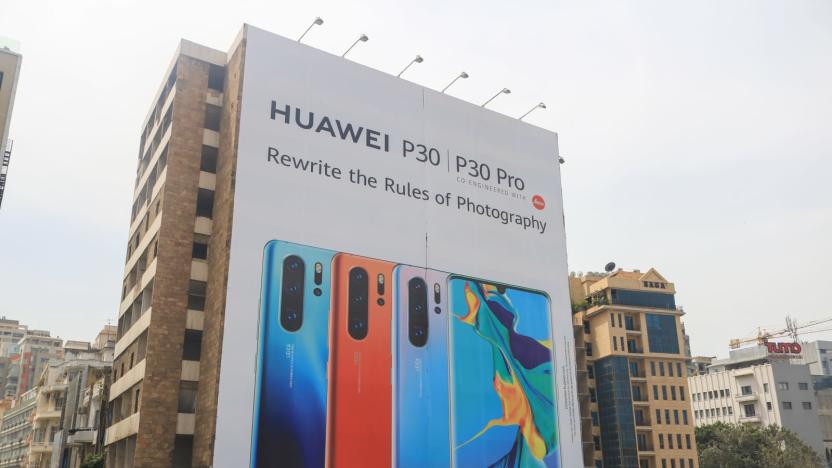
Trump to lift some restrictions on Huawei as part of China truce
Huawei is getting a partial reprieve from the US trade ban. President Trump and Chinese President Xi Jinping have reached a truce that will remove some restrictions on Huawei selling technology to the US. It's not certain exactly what will change, but Trump suggested the US would allow hardware that didn't have a "great national emergency problem." That could help Huawei restore some of its partnerships for consumer tech like smartphones and PCs, but networking hardware is likely to remain off-limits.
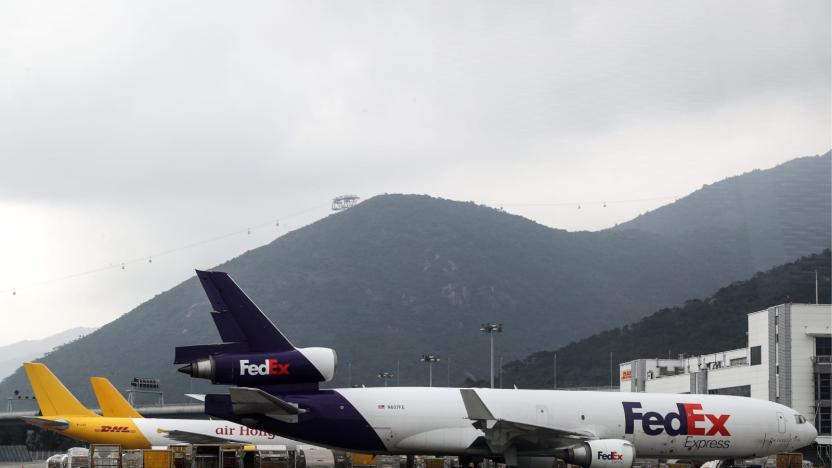
FedEx sues US over mandate to monitor Huawei shipments
FedEx has already been accused of diverting Huawei's shipments, and it's not keen on dealing with more complaints. The courier has sued the US Commerce Department (including Secretary Wilbur Ross and Assistant Secretary Nazak Nikakhtar) to absolve itself of the need to monitor packages for potential export violations by Huawei and other companies. It argued that the requirement not only violated the Constitution's protections for due process, but was technically unfeasible given the scale of FedEx's operations.
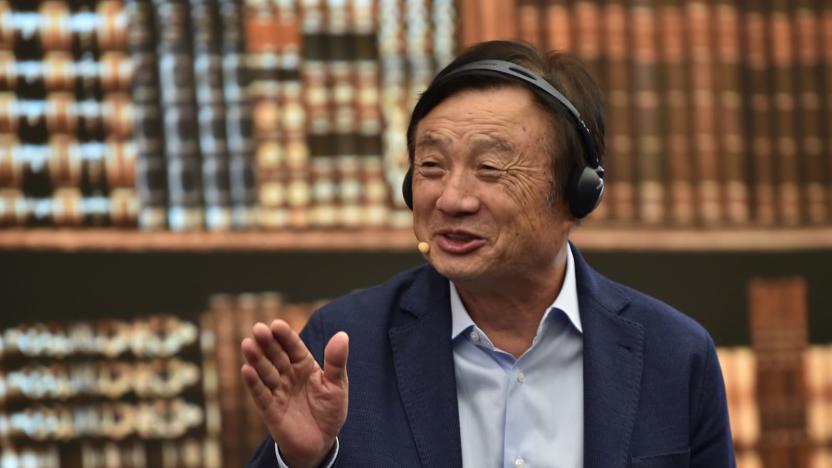
Huawei's US ban may cost $30 billion, but it vows to rebound
If you were wondering what the short-term cost of America's war with Huawei was, then your estimates can begin at the $30 billion mark. That's the figure Huawei chief Ren Zhengfei mentioned earlier today when discussing the hit his company will take in the next two years. Since Huawei is being hounded out of both the network and smartphone businesses, you can expect that figure to keep going up.

Huawei delays the launch of its foldable phone until September
If you were thinking about ditching the Galaxy Fold in favor of the Mate X after the former was delayed, think again. Huawei has told CNBC that is also pushing back the release of its folding phone to spend more time testing the hardware. The launch, originally pencilled in for this summer, will now take place in September. That will enable Huawei to ensure its mechanism is more reliable, and focus on other matters, like app compatibility.
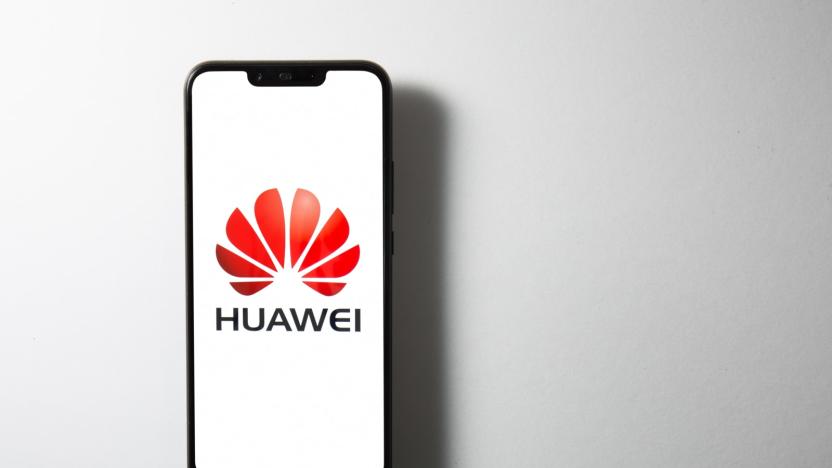
Huawei's lock screens unexpectedly turn into advertisements
According to Huawei users on Twitter, ads for the hotel reservation site Booking.com are popping up on the lock screen of some Huawei smartphones. As Android Police reports, the ads seem to appear on devices using the preinstalled landscape wallpapers. They've been spotted in several countries -- including the UK, Netherlands, Ireland, South Africa, Norway and Germany -- and on various models.

Huawei trademarks its own mobile OS following US ban
Huawei is making moves to sidestep the Trump administration's de facto ban by trademarking its own operating system. The OS, which has reportedly been in the works for years, was named in trademark applications filed in Peru under the name "Hongmeng," for use within nine countries and Europe (although it's been filed under the name "Ark OS" on the continent). The company has previously suggested the system could roll out as early as this fall, but it only seems likely to do so if it is permanently denied access to Android. However, while launching its own OS is one way Huawei could continue operations in the face of its US ban, there are concerns about such a system's security, as software is not the company's strongest area.

Tariffs are forcing Big Tech to move production out of China
In response to the Trump administration's trade war with China, major tech companies are preparing to relocate key manufacturing operations. According to Bloomberg, Google is moving production of its US-bound Nest thermostats and motherboards to Taiwan. The Wall Street Journal reports that Nintendo is shifting at least some production of its Switch console to Southeast Asia. At the same time, China has allegedly warned companies that they will face permanent consequences if they cooperate with Trump administration trade restrictions.








